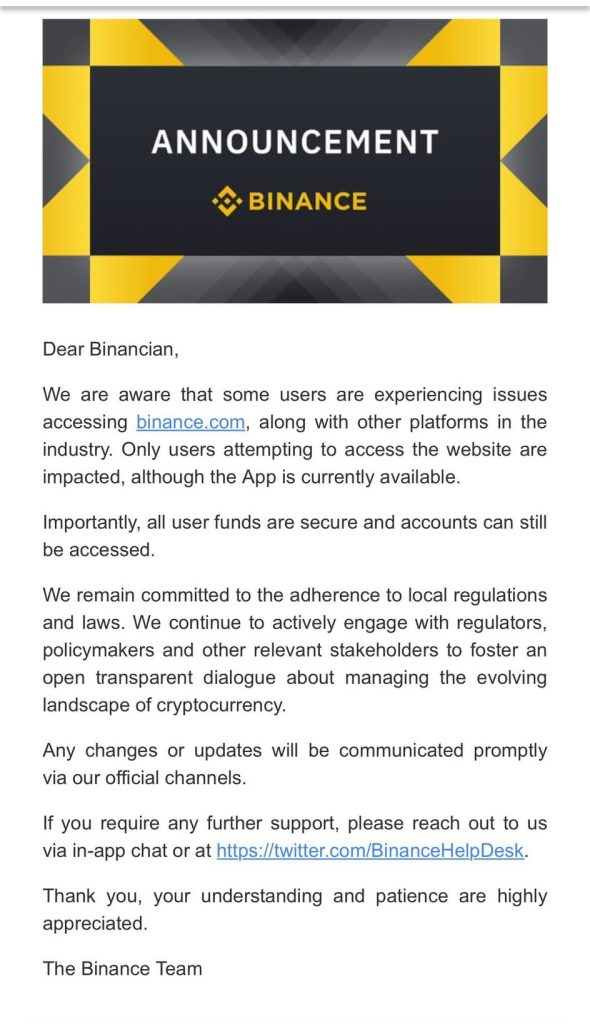Nigeria Has (Again) Fallen Out With Crypto Over The Slump Of The Naira

Nigerian regulators have again fallen out with crypto over a currency crisis that government figures say has been exacerbated by questionable trading activities on cryptocurrency platforms.
The Nigerian government took action Tuesday, blocking the websites of major crypto platforms including Binance, Forextime, OctaFX, Coinbase, Kraken, FXTM, and others. The world’s largest crypto exchange Binance confirmed its website is inaccessible in Nigeria though its app remains functional for some users.

The Nigerian Communications Commission relayed the directive to telecom companies, reports local news outfit Premium Times citing presidency and telecom sources. The latest restriction placed on crypto sites signals a departure from recent moves that indicated Nigerian regulators were warming up to crypto after a previous lengthy ban.
Nigeria’s crypto scene was buzzing after the Central Bank lifted a three-year ban, signalling a positive turn for the industry. Startups like Yellow Card and Quidax celebrated the newfound freedom, planning expansion and offering promotions to attract users.
The move aimed to create a regulated environment, fostering trust and growth in the crypto space with Nigeria ranking high in terms of adoption globally, largely driven by the country’s economic woes as locals seek refuge from rising inflation, currency depreciation, and dearth of gainful employment.
However, the tide turned abruptly. The government justified its latest move to block crypto platforms by citing concerns of forex market manipulation and illicit fund movements, linking these activities to the depreciation of the local currency. The naira tumbled to an all-time low of NGN 1,900 per dollar at the parallel market on Tuesday, amid speculation and uncertainty about supply constraints in the markets. Government figures are convinced the currency plunge is tied to manipulation of rates on crypto exchanges.
“Binance, facing regulatory showdown in many countries, and causing disruptions in the currency market, should not be allowed to dictate the value of the naira, not on its crypto exchange platform. Other crypto platforms such as Kucoin and Bybit should be banned from operating in our cyberspace. FX platform Aboki should be re-banned”, Bayo Onanuga, Special Adviser on Information and Strategy to President Bola Tinubu, commented recently.
“The EFCC and the CBN should move against these platforms trying to manipulate our national currency to Ground Zero. Crypto should be banned in our country or else this bleeding of our currency will continue unabated,” he added.
Prior to the restriction, Binance, one of several crypto companies caught in the crosshairs, made an effort to mitigate potential issues by imposing limits on peer-to-peer transactions, particularly the USDT/NGN pair. The company also issued a statement pledging cooperation, vowing to remove users engaging in manipulative behaviour, and working closely with local authorities to address compliance issues.
The latest clampdown on crypto players coincides with a broader directive from the National Security Adviser and the Central Bank to combat speculative activities in the foreign exchange market. This shift raises questions about the sustainability of the prior briefly favourable regulatory environment and its implications for the future of crypto in Nigeria.
Traders, now grappling with the restrictions, are seeking alternative platforms, noting the potential impact on stablecoin prices and expressing concerns about the overall stability of Nigeria’s evolving crypto industry.
Image Source: chormail/123RF // Image Effects by Colorcinch